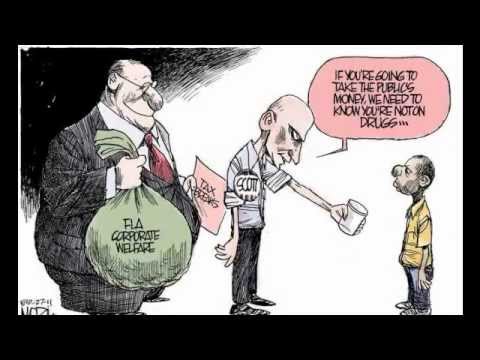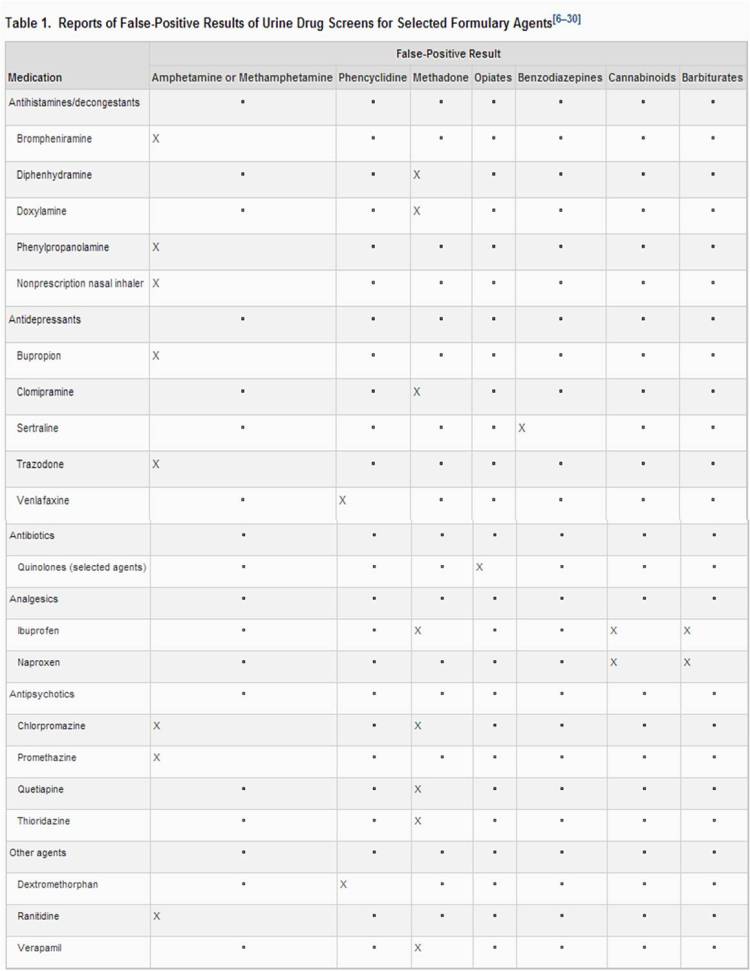Drug Testing and the LNP’s Ongoing Stigmatization of the Poor

The
message that the Abbott Government is sending Australians and the
world, is that Australian people in receipt of welfare are lazy, drug
addled parasitic bludgers who have the only aim in life of ripping off
the tax payer. The constant use of ‘welfare recipient’ and ‘unemployed’
rather than the use of the positive ‘job seeker’; the punitive measures
such as cancelling of benefits as a prime punishment; forced labour not
supported by workplace health and safety protections, nor minimum wage
all serve to create a negative stereotype of welfare recipients. Now we
have mandatory drug testing being flagged.
Mandatory
drug testing was flagged whilst LNP were in opposition, particularly
pushed by the born to rule, privileged class of the Young Liberals. The
group who have the highest likelihood of being able to be supported by
their parents as unemployed adults; being afforded the privilege of
gaining employment with their parents or their parents friends and being
afforded the privilege access to many other social benefits, such as
never going hungry and never being homeless.
The
underlying argument for drug testing of welfare recipients, is that
people on welfare are drug takers and associate with drug addled groups
of friends and they should not use tax payers money to do so. The fact
is, people across all levels of society can take drugs, so if the
Government was so concerned about the use of tax payers money to
purchase illegal substances then the following groups should also be
tested.
All Government Scholarship Recipients
All Politicians, Federal, State and Local Government
All public servants, state and federal
Farmers who receive subsidies
Mining Magnates who receive subsidies
CEOs and Board Directors in receipt of corporate welfare
All research groups in receipt of Government funded research grants
All CEOs and Board Directors of NGO’s in receipt of Government funding
If the concern is about drugs and not about stigmatising
welfare; then testing of these groups can be supported by studies in the
United States indicate that rates of drug and alcohol problems in
welfare recipients were no greater than the general population, or
non-recipients of welfare.
Some
of the answers against testing all of these groups, would be the cost to
the tax payer. However, so does the drug testing of welfare recipients.
In fact, studies show that of States in the USA who have drug tested
welfare recipients, only a very small percentage showed positive, as
compared to the general population. This will be a counter productive
exercise which will in fact cost the tax payer a lot more than any
recouping of welfare dollars.
The only real answer against testing the above groups, is
that they do not make the list of groups that the Abbott Government has
an agenda to stigmatize.
One of
the biggest concerns cited within the literature surrounding random
workplace drug testing, is that of a false positive. A false positive is
where the drug test shows a positive result, but the recipient of the
test is not an active user of illicit drugs. The other concern within
the literature is unfair dismissal, where it is too difficult to
determine the length of time a drug has been in a person’s system and
there is no measure of impairment and the result would not impact on the
safety of the tasks performed.
Another
concern, is that there is no way of detecting how it was administered.
This includes being in the same vicinity of someone engaged in the
smoking of cannabis (passive inhalation) or the biggest concern,
pharmaceutical and prescribed medications and the ingestion of some
foods.
Please see the appendix for a list of substances that can return a false positive in a drug test:
To put this list quite simply – the following common substances can return a false positive:
Poppy Seeds
Cocoa Leaf Tea
Herbal Medicines
Nasal Inhalers (ie as in the ones you use when you have a cold)
Cold and Flu tablets
Cough medications
Prescribed mental health drugs, including anti-depressives and anti-psychotics and ADHD medications
Ibuprofen (for example but not limited to: Nurefon)
Codeine (for example but not limited to: Panadeine Forte)
Pain relievers (for example but not limited to Tramadol)
The above information poses some serious questions:
Will the Government be prepared to drug test all the non-welfare recipient groups listed above?
If the Government is only prepared to drug test welfare recipients
only, what is the argument that this is not to purposely stigmatise
this group of welfare recipients?
Is the drug testing of welfare recipients a demarcation of deviant
and acceptable behaviour in society to shape the public view as negative
towards welfare recipients?
What studies has the Government done into False Positives in drug testing?
How can the Government guarantee that income will not be stopped in the case of false positives?
With the ongoing active stigmatisation of welfare recipients by the
Abbott Government, what systems will the Government have in place to
ensure that welfare recipients will not be unfairly treated and that
their objections will be listened to, in the event of a positive result,
that the recipient claims is false?
In the case of a false positive, what research has the Government
done on the self-efficacy of welfare recipients to use the complaints
process?
Knowing that common prescribed drugs and some foods can return a
false positive, would Mr. Abbott and his Government also be confident
that they will never return a positive drug test?
What impact will this have on regional, rural and remote areas without drug testing clinics?
Will drug testing be bulk billed, will the welfare recipient have to pay full cost, or will it attract the GP Co-payment Tax?
Drug dependency can equate to disability. What are the scenarios for
illicit drug dependent welfare recipients, who do not qualify for
disability, but are assessed to work more than 15 hours per week and are
on Newstart?
Will the Government’s only agenda be to stop welfare payments, or
will they be referring positive testers for treatment? If so, what is
the cost to the taxpayer? If the Government isn’t referring for
treatment, why not?
What impact will the removal of benefits have on the children of welfare recipients?
For all the LNP politicians advocating initiatives that deny
financial assistance to welfare recipients; on a scale of one to ten,
(one being the least hypocritical and ten being the most hypocritical)
what level of hypocrisy will be felt for those who will be participating
in the 2014 Vinnies CEO Sleepout on Thursday 19 June?
This is quite a complex area and I have tried to be as brief as possible to hold the readers attention.
I would urge everyone who is concerned with this, to push this to the
wider media and also to politicians to seek answers on this new
“Government Initiative of Stigmatising the Poor.”
Bibliography:
Amundson, K, Zajicek, A, & Hunt, V 2014, ‘Pathologies of
the Poor: What do the War on Drugs and Welfare Reform Have in Common?’, Journal Of Sociology & Social Welfare, vol. 41, no. 1, pp. 5-28.
Begala, P. 2013. “Drug Testing for Congressmen.” Newsweek Global 161, no. 11: 1.
Berger, PB n.d., ‘Science misapplied: mandatory addiction screening and treatment for welfare recipients in Ontario’, CMAJ: Canadian Medical Association Journal, vol. 165, no. 4, p. 443-444.
Blank, A, Hellstern, V, Schuster, D, Hartmann, M, Matthée, A,
Burhenne, J, Haefeli, W, & Mikus, G 2009, ‘Efavirenz Treatment and
False-Positive Results in Benzodiazepine Screening Tests’, Clinical Infectious Diseases, vol. 48, no. 12, pp. 1787-1789.
Brahm, N, Yeager, L, Fox, M, Farmer, K, & Palmer, T 2010,
‘Commonly prescribed medications and potential false-positive urine drug
screens’, American Journal Of Health-System Pharmacy, vol. 67, No. 16, pp. 1344-1350.
Chathanchirayil, S 2011, ‘False positive urine drug screening for tricyclic antidepressants in patients taking quetiapine’, Australian and New Zealand Journal of Psychiatry, vol. 45, No. 9.
Fitzsimons, M, Ishizawa, Y, & Baker, K 2013, ‘Drug testing
physicians for substances of abuse: case report of a false-positive
result’, Journal Of Clinical Anesthesia, vol. 25, no. 8, pp. 669-671.
Gunders, L 2012, ‘Immoral and un-Australian: the discursive
exclusion of welfare recipients’, Critical Discourse Studies, vol. 9,
no. 1, pp. 1-13.
Makkai, T, 2000, Drug Use Monitoring in Australia (DUMA): Drug
Detection Testing, Australian Institute of Criminology, Research and
Public Policy Series No. 25.
Moeller, K, Lee, K, & Kissack, J 2008, ‘Urine drug screening: practical guide for clinicians’, Mayo Clinic Proceedings, vol. 83, no. 1, pp. 66-76.
Pollack, H, Danziger, S, Jayakody, R, & Seefeldt, K 2002,
‘Drug testing welfare recipients—false positives, false negatives,
unanticipated opportunities’, Women’s Health Issues, vol. 12, no. 1, pp
23-31.
Appendix:
List of substances that can return a false positive in a drug test


No comments:
Post a Comment